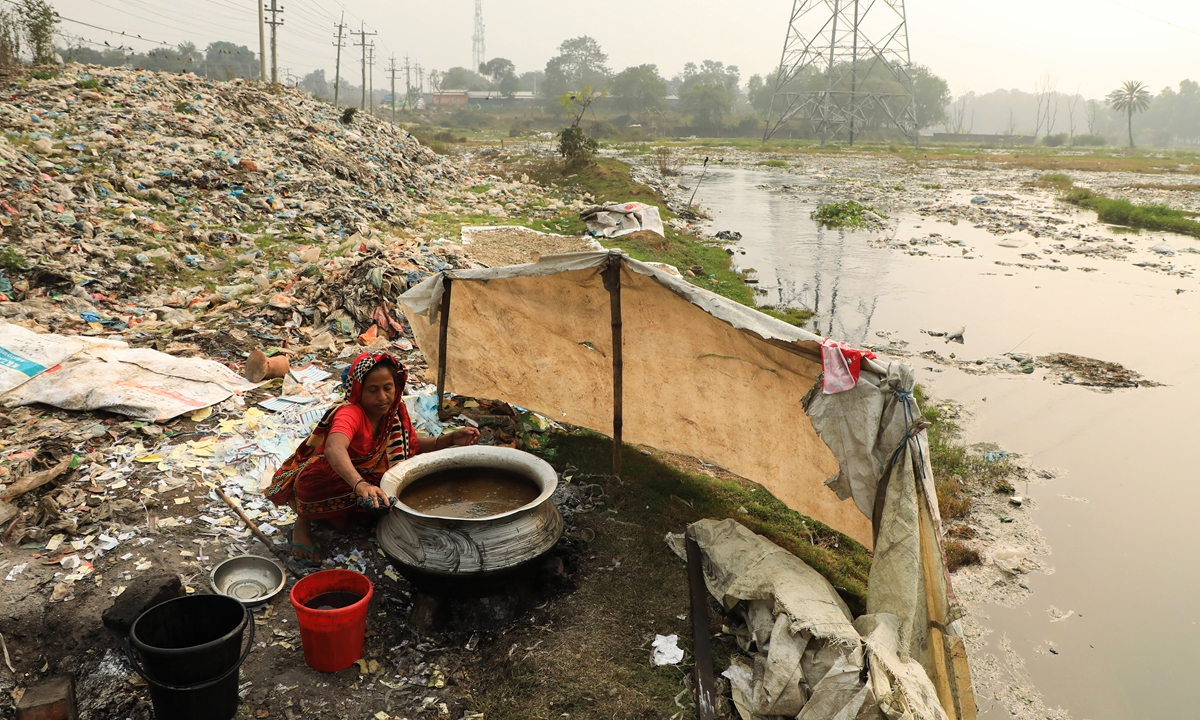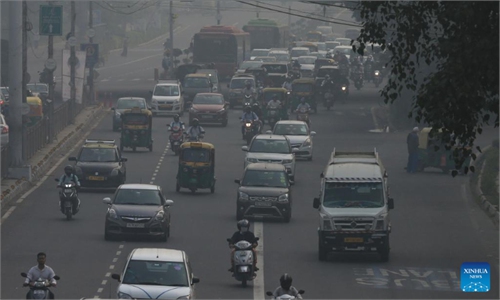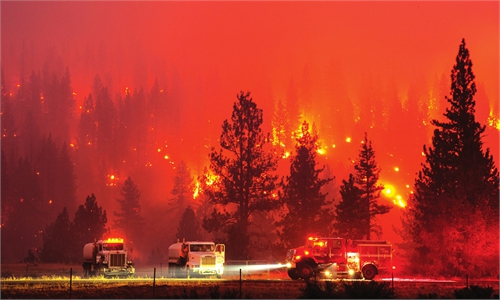Air pollution creates physical, mental health hazards in Bangladesh: World Bank

A woman is seen working around a plastic-polluted area in Gazipur, Bangladesh on February 8, 2022. Water pollution and overpopulation in the country lead to poor drainage systems. Without any action, the total financial loss due to river pollution would be $51 billion over the next 20 years, said the World Bank. Photo: VCG
Exposure to high levels of air pollution significantly raises risks of breathing difficulties, cough, lower respiratory tract infections, as well as depression and other health conditions, says a new World Bank report launched Sunday.
The report “Breathing Heavy: New Evidence on Air Pollution and Health in Bangladesh” assessed the impacts of outdoor air pollution on physical and mental health in Dhaka and Sylhet cities, noting that children under 5 years, the elderly and people with comorbidities such as diabetes, heart or respiratory conditions, are most vulnerable.
To reduce air pollution impacts on health, the report recommended immediate actions, including improving public health services and response mechanisms, improving air pollution data monitoring systems, investing in early warning systems, and engaging in further research.
The report finds that the sites with major construction and persistent traffic in Dhaka City have the highest level of air pollution. At these sites, the fine particulate matter (PM2.5), which is considered most hazardous to health, is on average 150 percent above the WHO Air Quality Guidelines (AQG), which is equivalent to smoking about 1.7 cigarettes per day.
“Ambient air pollution puts everyone at risk, from a child to an elderly. In 2019, air pollution was the second largest cause of deaths and disability in Bangladesh and costed about 3.9 to 4.4 percent of the country’s GDP,” Dandan Chen, acting World Bank country director for Bangladesh and Bhutan, said in a statement.
“Addressing air pollution is critical for the country’s sustainable and green growth and development. Through analytical work and new investments, the World Bank is helping Bangladesh reduce air pollution,” she said.
According to the report, air pollution caused about 78,145-88,229 deaths in Bangladesh in 2019.
“Air pollution causes the climate to change, and climate change worsens the air quality. Over time, climate change and urbanization will further intensify air pollution,” said Wameq Azfar Raza, World Bank Health Specialist and the lead of the report.
Xinhua



